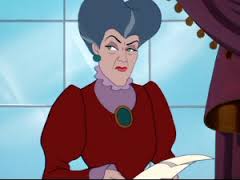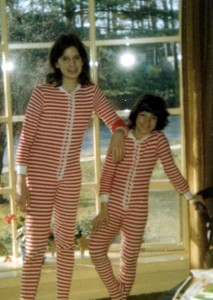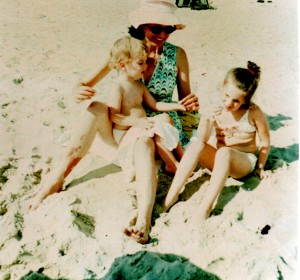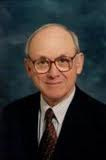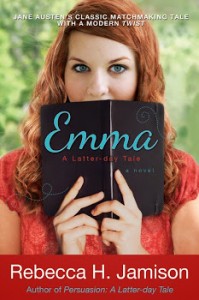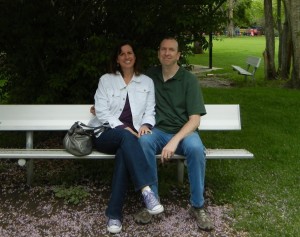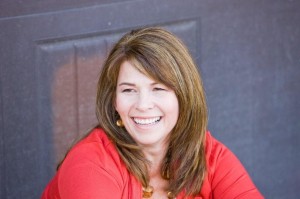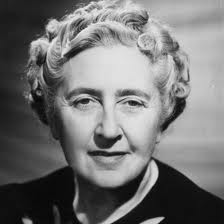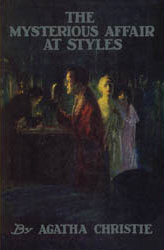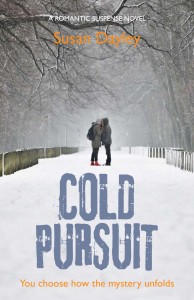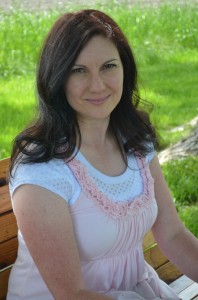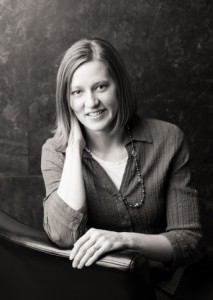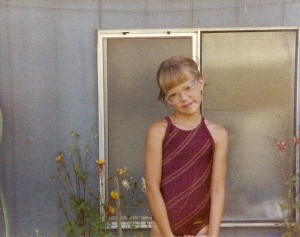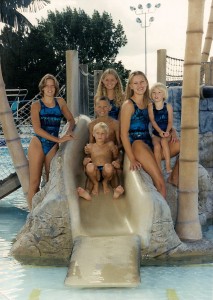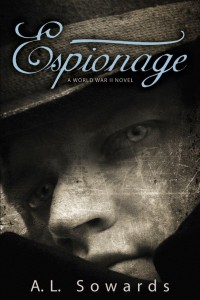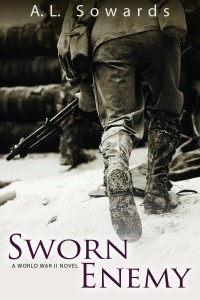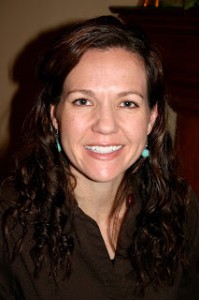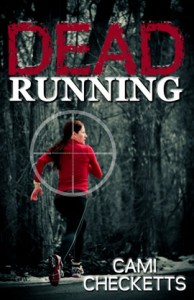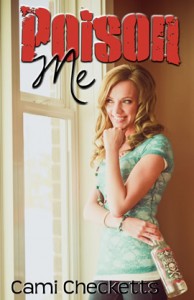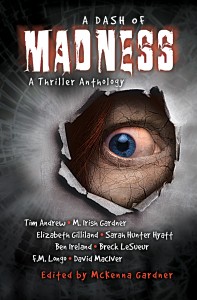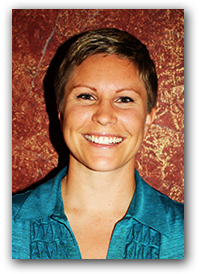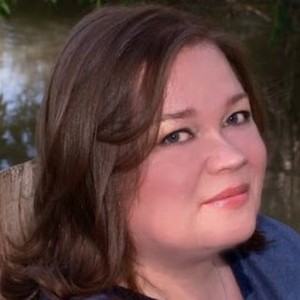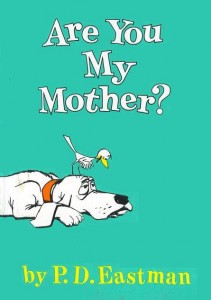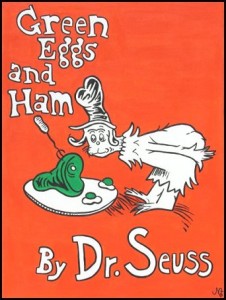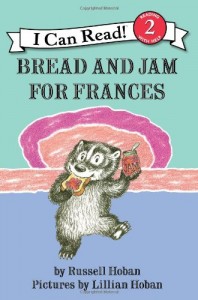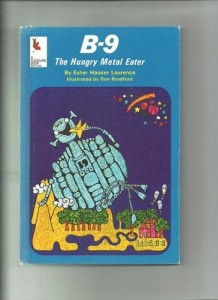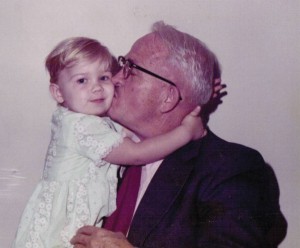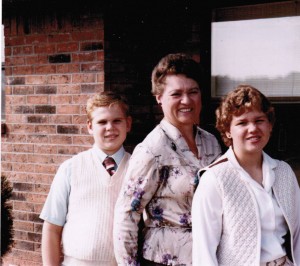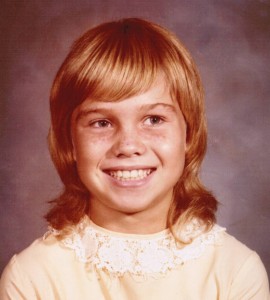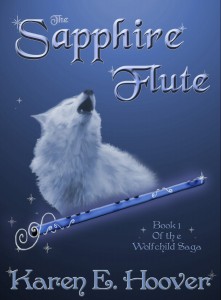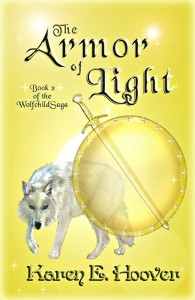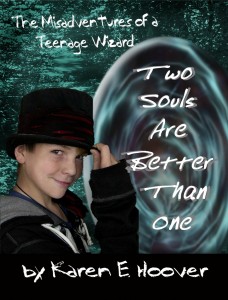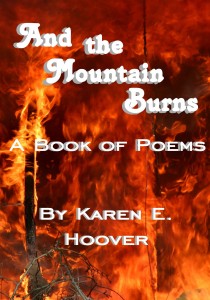It’s hard to know where to begin with Lu Ann. She’s written–both fiction and nonfiction, edited, taught young minds how to write, and basically lives in a world of books, now working as a school librarian. But let’s get to know her a little better, shall we?
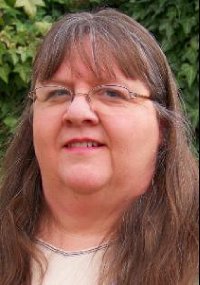 ME: Since you’re a native-born Hoosier who has now lived in Utah for a long time, what would you say are the main differences between the typical Indiana Midwest temperament and the Utah mindset? And what does each add to your writing?
ME: Since you’re a native-born Hoosier who has now lived in Utah for a long time, what would you say are the main differences between the typical Indiana Midwest temperament and the Utah mindset? And what does each add to your writing?
LU ANN: Indiana is known for Hoosier Hospitality, and although I’ve seen plenty of hospitality through my years living in Utah, there’s just something different about it when two native Hoosiers get together. Suddenly they have a common bond, even when they may actually have nothing in common. It’s hard to explain, but my husband—who grew up in Utah—notices it whenever we visit Indiana or I interact with someone from there as well. There is almost a different language between two Hoosiers, and I find that often comes through in my writing—more of a down-home, easy-going communication, filled with colloquialisms and old tales.
When it comes to my writing, I guess I tend to be that kind of a storyteller. With work ethics, Hoosiers have the motto “I’ll get around to it,” while Utahans seem to be more like “I’ll drop everything and get it done this minute.” I get things done, actually to the point of people constantly saying they don’t know how I do all that I do, but I do set my own priorities and try not to be dictated by other people’s emergencies, if you know what I mean.
(What a terrific insight into the two mindsets!)
ME: I imagine you’ve been writing for a long time. Can you remember your first creative story and share what it was about? (Also, I’d love to post a picture of you as a child.)
LU ANN: I actually don’t remember much about my early stories, although I do know I spent more of my childhood telling people I wanted to be a writer when I grew up. I was an avid reader, reading the most books during the summer reading program two years in a row.
By the time I was in junior high school I had discovered I could write well enough that I could get a good grade on just about anything, so I would tackle school projects with a spark of fictional creativity and ended up with lots of A grades that way. (Smart girl!)
I wrote my entire senior research paper on Macbeth one weekend by reading the play a scene at a time, considering what Zeffirelli had done with his film adaptation of Romeo & Juliet, and adapting his ideas to this other Shakespeare play. (And hints of the future screenwriter, too! Wasn’t the Zeffirelli version fabulous? One of my all-time favorites.)
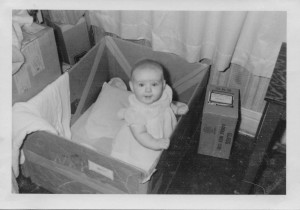
(I’m ready for my story now.)
ME: What childhood event had the strongest impact on you in terms of your future as a writer?
LU ANN: I don’t know that there was any one event. Along the way, I had some teachers who were really good; others who I perceived as maybe not so good. But I also had many teachers who were very supportive of me as a student writer. They understood that it wasn’t all about technical aspects of the first draft and they did all they could to support my interests and creativity when it came to my writing. They allowed me the freedom to explore without docking my grade as a result. (I always say that teachers are underrated and underpaid for the lives they affect.)
Probably the biggest influence, however, was my reading. As I mentioned before, I read A LOT! By the time I was 10, I’d read all the picture and chapter books in the children’s section local library. With the two summers I was involved in the summer reading program, I read over 400 books, finishing off the junior or middle grade library, and Mrs. Songer, the head librarian, gave me permission to start checking out books from the Young Adult collection by the time I was 12, two years earlier than the policy allowed. (Can I say that Librarians are also underrated?)
I read and reread those, finding many favorites—The Girl of the Limberlost, Hunger Valley, and the Cherry Ames series among them. So when I was 14, I moved into the ‘adult’ section, not at all what today’s name tends to imply. Most of the books I discovered there were much tamer than books are today. (I’ll bet!)
ME: Since you’ve been a teacher for 33 years and a school librarian since, please share the changes you’ve noticed, for better or worse, in the books young people read today as opposed to thirty years ago. And what do those changes reveal about our current educational system?
LU ANN: The sheer volume of books that are available to kids today is overwhelming, and the method of delivery has obviously changed through the addition of electronics. The general length of books has also increased as readers learned to accept books as large as Harry Potter and the Deathly Hallows as more the expected norm rather than the oddity it was.
When it comes to content, there have always been issue-driven books that may have made parents uncomfortable, if they had read them. But I’m not sure they actually did back then, not the way Middle Grade and Young Adult novels have become popular with adults now. I recently reread The Outsiders and was amazed at the amount of swearing the book uses, yet I’ve never had a parent complain. Likely they read it themselves as a kid and simply don’t remember the words, only the story. I do find there are many more books I have to warn students in my ultra-conservative community about, but they understand the simple film comparison—“This one is PG-13”—and make their choices on that. I’m happy to see that, for the most part, kids are given the opportunity in school to read books that can speak to them.
Contemporary novels allow teachers to teach reading improvement strategies in a more palpable way than sticking closely with the classics, which are too difficult simply because people no longer act or speak that way. Even the method of storytelling has changed since the time of Alcott, Hawthorne, Austen and the rest, accounting for why kids can’t connect to them. My greatest fear is that the drive to use a Common Core will once again force teachers back into teaching nothing but classics, thereby killing the joy of reading in millions of kids and stunting their growth toward becoming life-long readers and independent learners. (Hear, hear!)
ME: Changing tacks now, how did you come to be president of the Official Osmond Fan Club, and how has that impacted your writing career? (I must have a picture of you with one or more of the Osmonds.) Also how has it impacted your marriage? (And I’d love a picture of you with your very supportive husband.)
LU ANN: This is a really long story, a journey that I’m actually writing about in an upcoming book release, Living in an Osmond World, so I’ll give you the Reader’s Digest version here.
(Great way to tease us into buying the book when it comes out!)
Over the years I got to know Alan Osmond when I was traveling around the country as a fan to see his family in concert. When I moved to Utah, Alan wanted to know what I was doing here and asked me for my phone number. (I’m imagining a few heart palpitations after that request. :D)
The next thing I know, he starts calling, asking me to come along to see his boys perform here and there, take some photos, that sort of thing. I’d had several years’ experience at writing about the Osmonds through my own fanzine, so when the opportunity came up to start writing for the official fan club newsletter it was an easy segue. The woman who was running the club was looking to leave, Alan knew and trusted me, a mutual friend suggested to him that I should take over the club, and the rest is history.
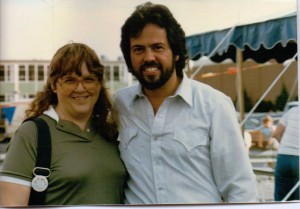 (Lu Ann and Alan Osmond)
(Lu Ann and Alan Osmond)
I wrote newsletters for The Osmond Brothers, Marie Ink., and The Osmond Boys, who I nicknamed 2nd G. Then I started writing the scripts for Stadium of Fire, the July 4th extravaganza Alan started at BYU. Through my work with the boys, I did some freelance work for 16, Teen Beat, Dream Guys, and Tiger Beat Magazines about their budding careers. (All you writers out there…this shows that you never know what one writing gig will lead to, so don’t be too picky.)
I still do some occasional writing for them today, press releases, newspaper articles, an occasional blog entry for Nathan and David, and Alan and I are once again discussing a book he wants to write.
My husband and I got married right after my last full time stadium show with Alan, although I did write the script for the next year for former co-worker Marilyn Toone. When Alan moved with his family to Branson, Missouri, continuing the newsletters became impossible for me to do, so my formal involvement as president and editor ended at that time.
We’ve continued to stay close, however, and Alan and I run ideas past each other, Nathan and David know they can always call when they need something, and all of them adore my husband as much as I do. As a matter of fact, my husband and one of our sons worked on Nathan’s Stars & Stripes music video. (You’ll find their names in the credits.)
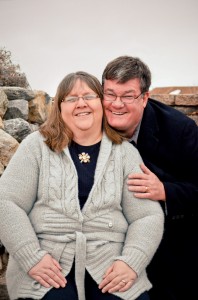 (Lu Ann and her adorable husband)
(Lu Ann and her adorable husband)
ME: You’ve written both fiction and nonfiction, and even ghostwritten stories. Which of your works was the most difficult to complete, and which has given you the most satisfaction, and why? (And please provide a cover image.)
LU ANN: The most difficult was WHEN HEARTS CONJOIN, yet it seems like it was also easy. I had heard about the story of the conjoined Herrin twins when it happened, and when I heard their mother, Erin, pitch her book idea at a conference I thought how much I’d like to write that story for her. But she already had a ghostwriter and I was in graduate school, teaching full time both at a public school and as an instructor for Bookwise, plus my husband and I had just adopted three more sons, bringing our total to five.
I put the idea out of my mind, until publisher and New York Times bestselling author Richard Paul Evans came to me, looking for a new ghostwriter for the Herrin story. I met with Erin, reviewed the online resources, and wrote a sample chapter. She loved it; Rick loved it; and I started to write.
Getting the details and chronology right was difficult, and many times I had to force Erin to dig deep into emotions she had tried to forget, but we needed them to be able to tell the actual story. In the midst of this, I took a terrible fall, breaking the radial head on my left elbow, dislocating my right elbow, and twisting my back and knee, yet I typed on, and nine months from the day the process began, Rick hosted a launch party and the book was born. (Now I understand what you mean about it being the most difficult.)
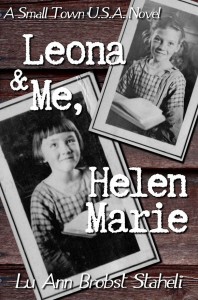
When it comes to the most satisfaction though, I’d have to say LEONA & ME, HELEN MARIE fits that bill. This is the story of my mother—Helen Marie—and her older sister—Leona—as they grew up in Hancock’s Chapel, Indiana, just after the depression of 1920.
My mother was a writer, although she was never published. She kept journals, wrote poetry for family occasions, and sent letters to family members all over the country, even those she hardly knew. She influenced my life as a writer (How could she not?), but also taught me that I needed to find a career that would someday support me; she didn’t think my desire to be a writer ever would.
In one way she was right; I had only published a few magazine articles and written live event scripts before she passed away in 1995. I realized if I was going to be a novelist, then I’d better stop procrastinating and write an entire novel. I’d recently read Gary Paulsen’s Harris and Me, a middle grade novel that used events from Paulsen’s own childhood to build the story.
I knew the stories of my mother’s childhood were just as compelling as any he told, so I began to write. When I got stuck, I turned to my mom’s journals and felt her spirit there, urging me on. Once the book was complete, I didn’t find a publisher for it and I began to doubt my abilities, but I started writing my next book anyway. As it has turned out, going Indie Press with Leona & Me has been the best and most gratifying thing for me. Those cute little girls on the front? My mother, Helen. is the one on the left (I can see the resemblance) and the other girl is my aunt Nonie.
ME: Please tell us about your latest novel, JUST LIKE ELIZABETH TAYLOR (which I highly recommend, by the way), and the process you followed to write and publish it. Has your writing process changed any over the years?
LU ANN: JUST LIKE ELIZABETH TAYLOR, a young adult novel from the Small Town U.S.A. series, is historical fiction with the feel of today. Liz faces challenges too horrific to think about, yet learns much about life, and herself, as she struggles to survive.
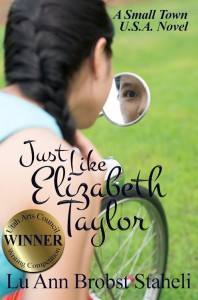
This novel started with a kernel of an idea, something I’d heard about on the news and it grew from there, sort of from the inside out, you might say. My husband and I had just adopted our first two sons and had been working within the foster care system for some time. I knew how difficult the lives of some of these children could be, but I also knew that adults suffered as much from situations of stress and abuse. I wanted to show that it is possible to survive, and that even wrong choices can still lead you to the path of safety and security.
I write fairly quickly when I make myself just sit and write on a single project, so, like several of my other books, this one was drafted in only a few months time. It won awards, including the Utah Arts Council Award for Juvenile novel, and editors requested a look at the full manuscript, but nothing happened on the New York scene. When self-publishing became a viable option, I decided to go that route for this book as well.
I guess that’s one way my writing process has changed. I now go into projects with much less stress. If a book doesn’t sell to a traditional publisher, I know I always have the option to self-publish, and that self-publishing no longer has the negative stigma it did when I first started writing.
ME: Since you’re an editor, do you turn to others to edit your work or do you do it yourself? And how long does it generally take you to produce a novel, taking into account the first draft, the critique group, the revisions, the beta readers, the edit, and the final revision? Also, do you run your first draft by your critique group as you’re writing it, or do you wait until the first draft is complete to begin getting their feedback on chapters? (Sorry for loading about fie questions into one.)
LU ANN: I always turn to members of my critique group before I ever even submit a book to an agent or editor. It’s amazing the little things you miss when editing your own book, but it’s even more amazing the big things you miss!
Authors are too close to their own writing. They think they have taken the picture in their head and put it onto the paper, but sometimes it doesn’t work out so well in the translation to the reader’s head. It is vital that you have a good critique group, beta readers, and others who will give you honest feedback. (Amen!!!)
I drafted 50,000 words of CARNY during NaNoWriMo (National novel Writing Month held each November) in 2011, which will give you a ballpark on how long it takes me to write. I’m still working on the critique and I haven’t started the revisions, but that’s because I researched, wrote, and revised the novel TEMPORARY BRIDESMAID (55,000 words) and the non-fiction history, MEN OF DESTINY: ABRAHAM LINCOLN AND THE PROPHET JOSEPH SMITH (48,300 words) in 2012.
I start taking pages to critique as soon as I need something to take to critique. Sometimes the book is nearly drafted—such as CARNY—other times it’s as I’m in the early stages of progress. I have found if I’m not at least 50 pages in though, it becomes too easy to set an unwritten book aside if I haven’t worked out my own ideas as to where it will finish in the end. (Good point.)
ME: What are you currently working on and how did you get the idea? Also, in this age of digital books, please make the case for keeping an actual personal library. (I understand you have a huge one, so I must have a picture of you in front of it, if possible.)
LU ANN: As is typical for me, I have many projects underway. I mentioned CARNY, a middle grade novel which started with the true story of my Grandpa Heffner who ran away from an orphanage when he was 12 and joined up with the circus. LIVING IN AN OSMOND WORLD is an extension of a blog series I was running about my experiences with members of the Osmond family, both as a fan and over the years I worked for Alan Osmond Productions. I’m finalizing a companion guide to BOOKS, BOOKS, AND MORE BOOKS: A PARENT AND TEACHER’S GUIDE TO ADOLESCENT LITERATURE, which was my McAuliffe project previously released in eBook. Just today a traditional publisher requested the chance to look at MEN OF DESTINY (How exciting! Congratulations and good luck!), and I’m planning to do one more revision on TEMPORARY BRIDESMAID and send queries to several national publishers for that.
I do think traditional books are important, but I also love eBooks. My Kindle is bursting with books, as are my iPhone, computer, and the Amazon Cloud. As the school librarian, I have physical books around me every day that I can read and recommend, and the women at the city library all know me by name. I have a spare bedroom in my home that is lined with shelves stacked deep. Unfortunately, in my husband’s opinion, so is the floor and the closet in that room, as well as cases of books to be found in the shed. There are bookshelves in both family rooms and the master bedroom as well, so taking a photo of my ‘library’ would be an impossible dream. The horde is just too great, so hopefully my description here will suffice instead. (I understand.)
One of my big projects this summer has been to read some of this collection to donate to the school library for either prizes or to add to the school collection, and to give other books to my friends and family as gifts for their kids. Since the end of May, I’ve read and donated over 40 books toward that goal. (Terrific! I’m sure your local library loves you!)
ME: Finally, please describe your writing space as it currently is (no tidying up) and provide a picture. (You see, I want to prove to my husband that I’m not the only writer that abides a bit of clutter.)
LU ANN: No, you’re not the only one to have a cluttered workspace. This is after I did some cleaning up, prior to receiving your email.

(Click on the picture for a slightly bigger view)
Let me give you a tour of the desk—my laptop, two external hard drives, printer, speakers and Ott-Lite are in the center of the desk. To the left a stack of critique revisions on CARNY and an original screenplay, TERROR IN DEAD HORSE CANYON, both waiting to be entered into the computer files.
Scattered all around are bookmarks, previously published books of mine, research books, and scraps of notes and ideas, as well as a book I’m reviewing for a publisher, and my phone—don’t forget my phone! The Lucy dolls are part of my collection, and the VHS videos got moved here sometime last year and haven’t yet found a different place in the house. I won’t even go into the stuff that is piled on top of the file cabinet. HAHA!
(Thanks for the tour. I’ll have to remember to show this to my husband. :D)
We never even got into her screenwriting, but you can learn more about Lu Ann and all her projects on her website, and you can also find her on Facebook and Twitter.
And don’t forget to come back next week when I’ll be talking with clean romance author Rebecca Jamison.
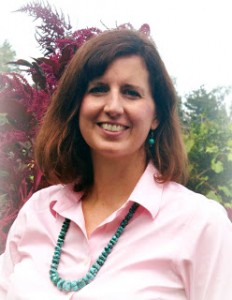
Originally posted 2013-08-14 06:00:57.

